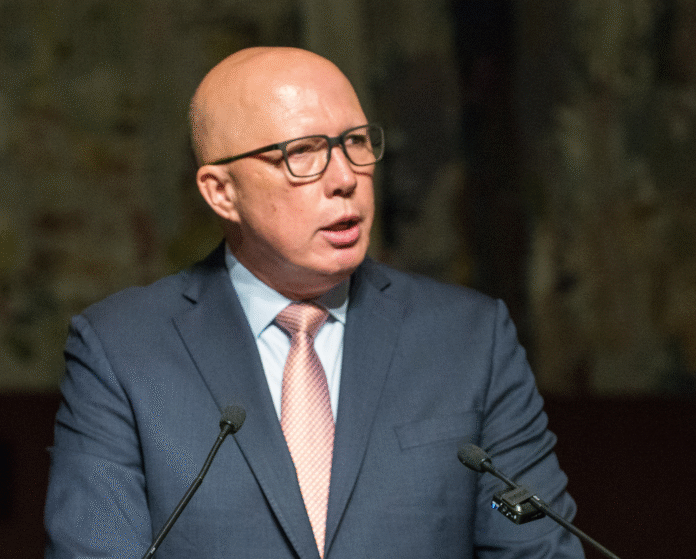Coalition ditches plan to sack 41,000 workers and ban WFH, raising fresh questions on costings
Peter Dutton has publicly backpedalled on one of the Coalition’s most controversial election policies, abandoning plans to sack 41,000 public servants and reverse flexible working arrangements, in a major campaign U-turn.
Just two weeks into the federal election campaign, the opposition leader admitted he had “made a mistake” by pledging to slash public sector jobs and restrict working from home, conceding the plan was unpopular with voters. “We’re listening to what people have to say,” Dutton said in a television interview. “We apologise for that.”
The stunning reversal has sparked scrutiny over how the Coalition now plans to fund its major election promises, including matching Labor’s $8.5bn Medicare package, which it had said would be bankrolled in part by public service cuts worth $24bn over four years.
Instead of mass layoffs, Dutton now says any reduction in the Australian Public Service (APS) will come via natural attrition—departures and retirements—with no forced redundancies. That could significantly reduce the expected savings, as data shows around 11,000 public servants leave the APS each year.
Embed from Getty ImagesUnder the revised policy, no specific office attendance requirements will be mandated either. In another reversal, the Coalition pledged to uphold existing flexible work arrangements and enshrine them in future workplace agreements, effectively abandoning its earlier stance that public servants should return to the office full-time.
Shadow public service minister Jane Hume, who previously declared in a speech that public servants would be expected to work in the office five days a week under a Dutton government, echoed the backtrack on Monday: “We have listened, and understand that flexible work, including working from home, is part of getting the best out of any workforce.”
The Coalition had framed Labor’s increase in APS staff since 2022 as wasteful and repeatedly branded them “Canberra-based”, though official figures show three-quarters are based outside the capital. Labor warned the cuts would have had real-world consequences, such as delaying welfare and veterans’ services.
Prime Minister Anthony Albanese wasted no time blasting Dutton’s reversal. “Nobody believes Peter Dutton has changed his mind on work from home,” he said. “He will rip up flexible work and slash the services you rely on the minute he gets the chance.”
Public Service Minister Katy Gallagher also expressed scepticism, calling the U-turn cynical. “They’ve campaigned against rebuilding the public service for years. They called it wasteful. And now, two weeks into an election, they expect people to believe they’ve changed their mind? Please.”
Labor had also warned that the public sector’s stance on working from home often influences private sector norms, raising concerns the Coalition’s original plan could have led to a wider rollback of flexible work across Australia.
Meanwhile, the Coalition has not released its costings or modelling for how much will be saved via natural attrition, nor explained how the reduced savings will impact its funding pledges. Dutton insisted “it was always the plan” to rely on attrition but provided no further details, drawing criticism from transparency advocates.
The backdown highlights the political danger of underestimating the popularity of remote work, particularly among women and working families who now depend on hybrid arrangements for balance.
With the election campaign still in its early stages, the retreat represents a significant misstep for the opposition—one that may undermine confidence in its broader economic plans.
